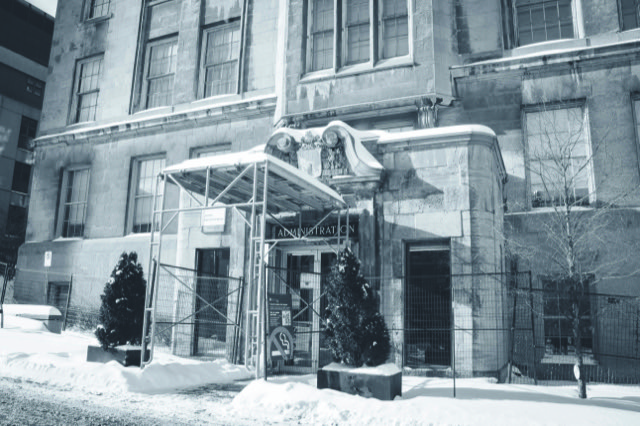After the McGill administration denied the School of Social Work’s decision to independently hold classes remotely until at least Feb. 25, the Social Work Student Association (SWSA) held a General Assembly (GA) on Jan. 17 to discuss the possibility of a strike. The motion to strike was successfully passed, with 70 in favour, three against, and two abstaining. The SWSA had previously detailed their concerns in an open letter to the McGill Administration before the GA and vote occurred.
The strike is set to run until Feb. 25, when another GA will be convened to vote on whether it should continue past March 4. Students will strike from School of Social Work classes held in person for the duration of the strike. However, they will continue to attend field internships and are encouraged to attend those courses held online. The SWSA will end the strike if McGill grants the School of Social Work full independence in choosing how and when its students return to in-person learning.
Students at the GA, such as Jo Roy, U3 Social Work, felt that the SWSA’s decision to strike was in line with the ethos of social work.
“[Social work] is very much a helping profession and one that cares about people and the ethics of it are very much in tandem with what we just did,” Roy said in an interview with The McGill Tribune.
Codey Martin, U3 Social Work, echoed Roy’s sentiments, noting that approving the motion to strike was an effort to apply the principles of social work in real life.
“It’s the basic fundamentals of the social work program that we are currently learning, […] to put all the course content material learnt in the three-year degree into practice,” Martin said. “It comes down to supporting one another.”
Alyssa Salaciak, U2 Social Work and the internal affairs coordinator at SWSA, was the chairperson for the GA. With the strike in motion, Salaciak is tasked with supporting social work students by holding Zoom meetings for students to voice any concerns or offer points of advice to one another.
“Now that we have agreed to strike, what does that mean for [SWSA]?” Salaciak said. “[It means] supporting students as they do it because it’s quite scary […] We’re here for you. We’re here for each other.”
Hannah Kirk, U3 Social Work, has an internship working with elders and older people living in Kahnawake, Mohawk Territory located on the south shore of the Saint Lawrence River. Like other social work students, Kirk is concerned about the risk of contracting COVID-19 in in-person classes and spreading it to the Indigenous communities with whom she interacts.
“The implications of me, as a white person, going to a class of 40 people, contracting COVID-19, and going on reserve and spreading it are really heavy, and McGill is responsible for that,” Kirk said. “When it comes to actually making decisions that protect the Indigenous community […] they don’t care.”
The SWSA is not the only students’ association at McGill pushing for school-specific autonomy in regards to remote learning. The Education Graduate Students’ Society (EGSS) announced a strike vote on Jan. 19. The Law Student Association will hold a Special General Meeting on Jan. 28 to discuss student concerns and the possibility of a strike.
According to Martin, the motion to strike is just the beginning of a greater movement for the SWSA.
“I think it’s going to build momentum and people are going to start to really start to voice their concern and speak for a better understanding of the situation that McGill and other institutions are putting people in,” Martin said. “As much as I want to be in person, I’d love to be in-person, but unfortunately in the last 21 months of not contracting a virus, I kind of want to keep it that way.”








